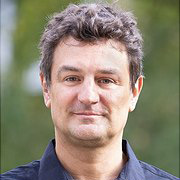research data
Events
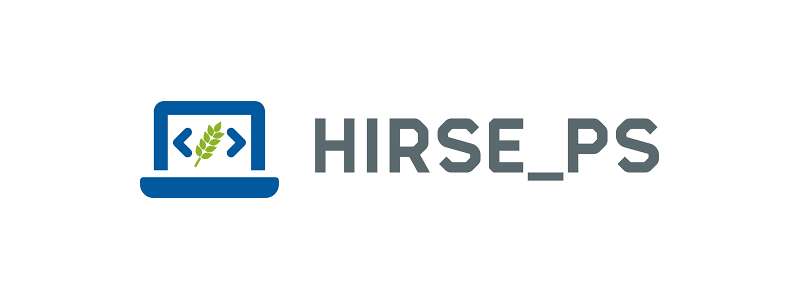
50th HiRSE Seminar | The winners of the 2024 Helmholtz Software Award
Abstract: The Helmholtz Research Software Award aims to promote the development of professional, high-quality, and sustainable research software and to recognize commitment to software as the basis of modern data science. The Helmholtz Software Award is presented by Helmholtz Federated IT Services (HIFIS), the Helmholtz Information & Data Science Academy (HIDA), and the Helmholtz Open Science Office.
Winners in the three categories Scientific Originality, Sustainability and Newcomer, were selected by international experts and a final selection committee. The winners of the 2024 awards are:
- Scientific Originality Prize:
- CP2K
- Sustainability Prize:
- FastSurfer
- Newcomer Prize:
- MemBrain v2
The announcement and connection details are posted here:
- HiRSE-internal HiRSE Mattermorst channel,
- HIFIS Mattermost channel,
- Helmholtz Open Science Mattermost channel,
- FZJ-internal #rse Rocket.Chat channel,
- de-RSE mailing list and de-RSE Mattermost channel,
- Helmholtz Open Science Pro Mailinglist,
- RSE mailing lists of the HiRSE partners (if any).
If you are unable to join via one of these channels please email hirse@fz-juelich.de.
Institutions
- Helmholtz Platform for Research Software Engineering - Preparatory Study

51st HiRSE Seminar | “Before Distributing Research Software - Impulses from an RSE&TTO-Perspective”
Dirk Feuchter from the Karlsruhe Institute of Technology will join us at the HiRSE Seminar Series to talk about “Before Distributing Research Software - Impulses from an RSE&TTO-Perspective”
Abstract: Before distributing research software, several considerations arise from both Research Software Engineering (RSE) and Technology Transfer Office (TTO) perspective. This talk addresses scenarios where RSEs approach the TTO to exploit and license RSE’s software to industry partners, spin-offs, or to explore via open-source business models. Let us outline the minimum requirements for a license-compliant software distribution and discuss whether RSEs can proactively collaborate on these preparations. Drawing on a common contribution to deRSE25, initial lessons learned will be shared, including essential information for source code files and tools such as Reuse and Fossology that might support for compliance. Finally, we highlight how to deal with emerging regulations like the Cyber Resilience Act or the new Product Liability Directive. The seminar is intended to encourage discussion on integrating compliance tools into development workflows to enhance sustainability and value of our research software developments.
Institutions
- Helmholtz Platform for Research Software Engineering - Preparatory Study
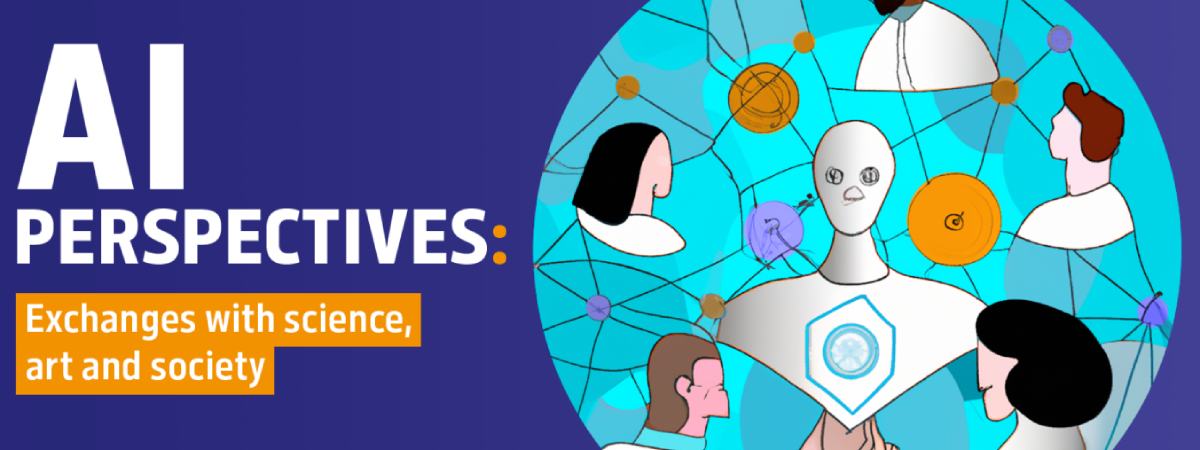
AI-Perspectives: New series of events
What is AI Perspectives?
AI Perspectives is a new series of events that explores important questions in the field of AI addressing specialists of various disciplines from the natural sciences, the humanities and the arts.
Overview
AI is everywhere. Also at DESY. High time to launch its interdisciplinary research forum AI Perspectives focusing on AI and reflecting the trans- and interdisciplinary field that is Artificial Intelligence. We at DESY are interested in looking at the innovative field from a variety of different angles and discuss them with the public. This is why DESY sets up an interdisciplinary research forum on AI.
The research forum will be divided into two different events: an academic workshop seminar as well as a public panel discussion in the evening with the invited public. Participants are primarily young academics and artists, scientists and philosophers working in the field of AI. For the evening event the public is invited to join in the conclusions and preliminary results of the workshop session earlier in the day and pose their own pressing questions to the interdisciplinary group. The workshop seminar will be conducted in English, while the evening event will be in German.

DDLitLab im Dialog: Aufbau fachbezogener KI-Communities und Durchführung einer Lehrveranstaltung zu KI und ML
Zu Gast: Dr. rer. nat. Lilian Löwenau, Projektkoordinatorin / Operative Projektleitung „AI-SKILLS“, Humboldt-Universität zu Berlin
Das vom BMBF geförderte Lehre- und Infrastrukturprojekt AI-SKILLS der Berliner Humboldt-Universität hat das Ziel, Lehrenden und Studierenden die fachspezifische Auseinandersetzung mit KI-Methoden und KI-Technologien forschungsbezogen und anwendungsorientiert zu vermitteln. Dabei verfolgt das Projekt einen multidisziplinären Ansatz, d.h., alle Disziplinen sind in den Communities of Practice vertreten, die sich jeweils untereinander den Themen KI und ML widmen. Im Rahmen des DDLitLab wird am Beispiel AI-SKILLS der konkrete Aufbau solcher Communities vorgestellt; dabei werden Erfahrungen mit der Initialisierungs- und Produktivphase der Communities geteilt und sowohl praktische Aspekte als auch erforderliche Maßnahmen zur Nachhaltigkeit und Nachnutzbarkeit der Arbeit in den Communities besprochen. Über den Aspekt der Communities hinausgehend, wird als Abschluss die gesamtheitliche Förderung der Themen KI und ML im universitären Curriculum anlässlich der Durchführung einer entsprechenden fächerübergreifenden Ringvorlesung besprochen.
Institutions
- DDLitLab, ISA-Zentrum

DDLitLab im Dialog: Data Driven Business Models
In der Gesprächsreihe DDLitLab im Dialog gehen wir gemeinsam mit Expertinnen und Experten aktuellen Perspektiven, Projekten und Debatten über Daten- und Digitalkompetenzen im Zeichen innovativer Hochschullehre auf den Grund. Ziel ist es, eine offenen Raum zu schaffen, in dem die Teilnehmenden sich über ihre Erfahrungen und Gedanken mit ausgewählten Referent:innen zu aktuellen Entwicklungen austauschen können.
In diesem Semester starten wir mit Prof. Dr. Christopher Buschow (Hamburg Media School) und Dr. Daniel Possler (Universität Würzburg) mit ihrem Seminarkonzept zum Thema „Data Driven Business Models“. Im Rahmen eines Seminars „Data Driven Business Model Generation“ und einer entsprechenden Ringvorlesung am Institut für Journalistik und Kommunikationsforschung (IJK) der Hochschule für Musik, Theater und Medien Hannover haben sie die veränderten Anforderungen an Medienunternehmen und die Grundlagen datengetriebener Geschäftsmodellen vertieft. Welche Datensätze werden in (Medien)Unternehmen gesammelt und wie werden sie aufbereitet? Wie werden Geschäftsmodelle rund um diese Daten entwickelt? Welche technologischen, ethischen und gesamtgesellschaftlichen Aspekte werden bei datenbasierten Geschäftsmodellen beleuchtet?
Sowohl Mitglieder der UHH als auch externe Gäste sind herzlich dazu eingeladen, sich aktiv an unseren Gesprächsrunden zu beteiligen!
Präsenz und via Zoom. Die Zugangsdaten für die digitale Teilnahme via Zoom erhalten Sie nach Ihrer Anmeldung kurz vor dem Termin per E-Mail.
Institutions
- DDLitLab, ISA-Zentrum

EIM Colloquium/Inaugural lectures Autonomous and Networked Cyber-Physical Systems
As part of this colloquium, we will give our inaugural lectures entitled “Networked Cyber-Physical Systems: From Connected Things to Thinking Systems” and “Autonomous Cyber-Physical Systems: Towards a Life Without Batteries.” The program will be complemented by a guest lecture by Prof. Dr. Kay Uwe Römer, Head of the Institute of Computer Engineering at Graz University of Technology, on the topic of “Dependable Internet of Things for Mice and Men.”
These lectures are an important milestone for us and, at the same time, a wonderful opportunity to look back on our academic journey so far and give you a preview of our upcoming research. After the lecture, we invite you to a small reception to celebrate together with a glass of sparkling wine. We look forward to your participation and kindly ask you to register by November 11, 2025.
Institutions
- Hamburg University of Technology (TUHH)

EVERSE Network for Research Software Quality Launch Event
The EVERSE project is committed to improving the quality of software in European research in the international context. EVERSE is launching a Network of Research Software Quality to allow us to work with individuals and partner organisations to achieve this common goal.
This is the launch event for the EVERSE Network of Research Software Quality - a community that will improve the quality of research software in Europe and beyond. We invite everyone who is interested in software quality to join us!
We think the network can contribute significantly to improve policy and practice for research software. We will present our ideas in EVERSE about what role the Network can play. However, we also want to hear from you.
- What issues does your community face with its research software?
- What benefits can you envisage from engaging with other software experts in science?
- What would you like to contribute to a software quality network?
Please register for the event so we can stay in touch and build a strong and effective Network for Research Software Quality.
Institution
- EVERSE European Virtual Institute for Research Software Excellence

KI und Wir
Die Veranstaltungsreihe beschäftigt sich in diesem Herbst unter dem Titel KI und Wir mit den rasanten und grundlegenden Veränderungen unserer Gesellschaft durch künstliche Intelligenz.
Vom 9. Oktober bis zum 14. November diskutieren Expert:innen aus Wissenschaft, Politik und Praxis mit dem Hamburger Publikum über das Potenzial von ChatGPT und Co. Wie können die neuen Technologien Medizin und Klimaschutz voranbringen oder auch in der Kunst genutzt werden? Wo kann KI beim Lernen in Schule, Hochschule und darüber hinaus unterstützen? Welche Regulierungen oder Transparenzvorschriften brauchen wir dabei? Um diese und andere Fragen geht es in vielfältigen Formaten von Podiumsdiskussionen über Ausstellungen bis hin zu interaktiven Workshops, die zum
Mitdiskutieren, Dazulernen und Ausprobieren einladen. Die Veranstaltungen finden u.a. an der Uni Hamburg statt. Viele UHH-Mitglieder tragen aktiv zum Programm bei.
Institutions
- UHH
- HIAS
- Körber Stiftung

KI-Methoden im Akademienprogramm: Potenziale und Anwendungsszenarien
Um Methoden aus dem Bereich der Künstlichen Intelligenz adäquat in der Forschung anwenden zu können, ist es erforderlich, sie in ihren Grundzügen zu verstehen und idealerweise aktiv (spielerisch) zu erproben.
- Welche Verfahren gibt es überhaupt und wie funktionieren sie technisch?
- Wo kommen sie im Akademienprogramm bereits zum Einsatz, wie können Forschende voneinander lernen und Synergien nutzen?
- Profitieren die Geisteswissenschaften nur von den neueren Entwicklungen im Bereich Generativer KI oder leisten sie auch einen Beitrag zur KI-Entwicklung?
Die Themenkonferenz, die von der Akademie der Wissenschaften in Hamburg und der Niedersächsische Akademie der Wissenschaften zu Göttingen ausgerichtet wird, möchte sich diesem Spannungsfeld widmen. Teilnehmende haben die Möglichkeit, die Potenziale neuer Methoden für die Analyse und Aufbereitung digitaler Ressourcen, speziell im Akademienprogramm, gemeinsam zu erörtern und zu erproben.
Um einen Überblick zur (auch geplanten) Verwendung von KI-Methoden zu geben, laden wir Angehörige der Unionsakademien und Langzeitvorhaben im Akademienprogramm herzlich ein, einen Impuls-/Kurzvortrag oder einen Vorschlag für eine Hands-On-Session oder Systemdemonstration beizusteuern (s. vorläufiges Programm).
Vorschläge (i.d.R. nicht mehr als zwei pro Akademie) können bis zum 30. Juni 2024 formlos an ki@akademie-der-wissenschaften-in-hamburg.de gesendet werden. Es ist vorgesehen, die Foliensätze der Beiträge auf Zenodo zu veröffentlichen.
Vorläufiges Programm hier

MLE Days 2023 - Summer School and Conference for Machine Learning in Engineering
On September, 25th to 27th, 2023 the third MLE Days on machine learning in engineering will take place on the campus of the Hamburg University of Technology (TUHH). This year, it combines a summer school with a one-day startup-challenge. Participation is free of charge.
The Summer School teaches insights into the world of machine learning with a focus on engineering. It provides sessions about fundamentals of machine learning, concrete application examples, as well as hands-on sessions to try out and consolidate lessons learned. Keynote talks complete the program. Three parallel tracks are provided to allow participants to choose contributions adapted to their interest and machine learning experience. The use cases range from sensor and image processing, to electrical engineering and materials science, to aviation and maritime logistics. A poster session and an elevator pitch event allow participants to present their own work on machine learning topics. The best posters and pitches will be selected by a jury and awarded prizes. A networking event allows attendees to establish contacts with selected corporate partners and sponsors from start-ups and medium-sized businesses to large corporations. In the startup-challenge attendees learn how to turn machine learning ideas into a business.
The MLE Days are organized by the Machine Learning in Engineering research initiative of the TUHH (MLE@TUHH) in collaboration with the Helmholtz Center Hereon, DASHH, and the Career Center of TUHH, the AI.Startup.Hub, and AI.HAMBURG. The MLE initiative joins the competencies in the field of machine learning at the Hamburg University of Technology with the goal of transferring knowledge towards business and industry. Students, PhD students, postdocs, and professors from all disciplines of the TUHH are engaged together with colleagues from the Helmholtz Center Hereon to make methods and applications of machine learning known, to network, and to foster scientific exchange.
Join us to discover the new applications of machine learning in engineering practice!
Institutions
- Hamburg University of Technology (TUHH)

MLE Days 2025
The Machine Learning in Engineering (MLE) initiative integrates competencies and activities in the field of machine learning at Hamburg University of Technology (TUHH) and partner organizations from the Hamburg metropolitan area. Within the Machine Learning in Engineering (MLE) initiative, students, doctoral candidates, postdocs, researchers, and professors from all departments at the TUHH and from the partners are working interdisciplinary together. The aim is to conduct fundamental research particularly relevant for the development of new technology, thereby contributing to the digital transformation of the engineering sciences. In addition to basic research, the initiative aims at transferring knowledge to business and industry. Among a number of instruments for this kind of transfer, the annually organised MLE days provide a natural opportunity for education and knowledge exchange.
Registration: If you want to attend, please, send an email to Ulrike Schneider (in cc) with your name and affiliation. The registration is open until 01.03.2025. The number of participants is limited by the size of the lecture hall. For guaranteeing your participation and to make planning (particularly of the coffee breaks) easier, please register as soon as possible. Your data will only be used for organizing the MLE Days.
Program (preliminary):
09:00-15:00: Presentations by MLE-members and partners following the updated MLE structure here
15:00-17:00: Poster & Networking session
Catering: There will be a coffee break in the morning and afternoon with hot drinks and snacks. Lunch in the canteen is to be paid for by the participants themselves.
Poster in English until 14.02.2025.
The organizing committee reserves the right to reject registrations and poster contributions. If you have any questions, please do not hesitate to contact the organizing team via mle@tuhh.de .
Institutions
- Hamburg University of Technology (TUHH)

Online guest lecture by Prof. Dr. Hannah Bast
Professor Bast completed her Ph.D. and Habilitation at the MPI for Informatics in Saarbrücken. She is a professor for computer science at the University of Freiburg since 2009. Her research focus is on all kinds of intelligent search in large data sets, with and without AI. The search technology developed in her group is used worldwide on a daily basis. During an extended research stay at Google, she developed a new public transport route planner for Google Maps. She has served as Dean of the Faculty of Engineering, and is still serving as Dean of Studies and Senator of the university. She was a member of the German Bundestag's Enquete Commission on Artificial Intelligence. She is a member of the committee that is responsible for the evaluation of the German Leibniz Institutes. She has received various research and teaching awards.
She is going to talk about QLever, which is a new SPARQL engine and triple store developed by her group, with several unique features. Notably, QLever is very fast, can handle hundreds of billions of triples on a standard PC, supports the incremental construction of SPARQL queries via context-sensitive autocompletion, supports SPARQL+Text queries on text linked to a knowledge graph, and supports very fast spatial joins on very large numbers of geometric objects as well as the visualization of very many such objects on a map. She will show many examples and demos, some performance comparisons with other engines, and will also take a look at what's under the hood. If time permits, she might also talk about the automatic translation of natural language questions to SPARQL queries via large language models, and about entity linking . Also a word or two about the rewards and challenges of writing and maintaining software that actually works in academia.
Institutions
-
Leuphana Universität Lüneburg

Research data and data science - Introduction of CRDM and HCDS
In the digital transformation of science, research data is an essential basis of the research process and as diverse as the subject cultures in which they are created and used. In data-based or data-driven research, computational methods can be used to scale and transform the research process.
As a scientist, you should store your research data in a secure technical environment using established standards and compliance with data protection regulations. When using computer-aided methods - from statistics to artificial intelligence - and in interdisciplinary research and use of innovative digital methods, you need advice from an expert.
What does this mean in concrete terms for scientific practice? The experts give concrete tips and answer your questions. In addition, the participants have the opportunity to exchange perspectives, challenges and best practice examples and to be inspired.
All interested parties are invited to find out more about the services of the Center for Sustainable Research Data Management (CRDM) and - this time also present - the House of Computing and Data Science (HCDS) at Universität Hamburg from 12 p.m.
The information event is open to the university. Registration is free. The event will take place in German.

Rethinking AI and Ethics: Risk, Responsibility and Imagination
Artificial Intelligence is transforming how we live and work. It holds great promise, but also raises important questions about responsibility, fairness and impact.
In this session, we explore AI beyond technology – as something deeply tied to human values and society. Two inspiring speakers will share their perspectives on how to design technology responsibly and imagine better digital futures.
Talks
Lieke Fröberg, Research Associate, Ethics in IT, Informatics Department, University of Hamburg
Artificial Intelligence is often seen as a powerful tool to detect risks and make better decisions. But how can one and the same technology both help prevent harm and cause new risks?
Lieke invites us to think deeper about this paradox and reflect on who is served by AI systems, who becomes more vulnerable, and who has a say in shaping them.
Andrea Kaewel-Siebahn, AI & Digital Ethics, Director of Produkt
“Shaping the world of tomorrow – how utopias help us to build better digital solutions”
Digital products already shape the world we live in – and AI will accelerate this change. Andrea explores how utopian thinking can help us look beyond short-term impact and imagine technologies that truly benefit individuals, organizations and society in the long run.
Institutions
- Meetup

Unlock Powerful Computing Resources & Expertise – Join the Lecture on NHR Services for Artificial Intelligence
We’re excited to invite you to a workshop, where we’ll introduce the NHR Network for Artificial Intelligence and the vast array of services available in Göttingen.
These services can complement your local compute resources. Whether you’re a researcher, academic, or student, this session will empower you to leverage these powerful computing resources and expert support for your work.
Just join us on Monday, 24.11.2025, 10 am - 12 pm online via zoom (Meeting ID: 622 7696 1715, Passcode: 86806475)
Agenda Overview:
* Introduction to the NHR Alliance: Learn about this key initiative and how it supports high-performance computing across Germany.
* Presentation on NHR-Nord@Göttingen: Explore the services provided by Göttingen’s computing center.
* Comprehensive Service Offerings: Discover the extensive services available to researchers, including tailored advice, training, and specialized computing resources.
* Explore Science Domains: Gain insights into the wide range of disciplines supported by the NHR centers.
* KISSKI AI Service Center: Learn about the cutting-edge infrastructure for sensitive and critical applications.
* Access to Computing Clusters: Get the details on how you can use these systems for your research.
* Wrap-up: Key takeaways and resources for getting started.
What is NHR? The National High-Performance Computing (NHR) program is an integral part of Germany’s HPC infrastructure, classified as a Tier 2 center. With nine NHR centers across Germany, NHR provides free access to high-performance computing resources and expert support for universities nationwide.
Institutions
- NHR-NORD@Göttingen
People
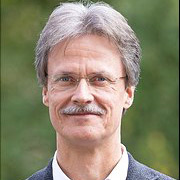
Stefan Thiemann
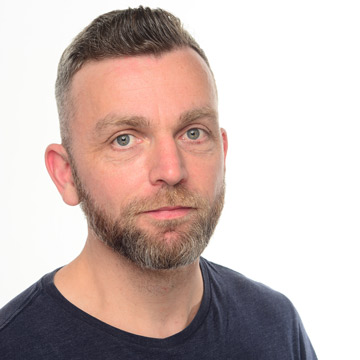
Timm Lehmberg
Institutions
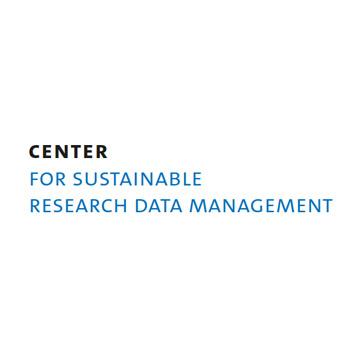
Center for Sustainable Research Data Management, UHH
The Center for Sustainable Research Data Management (RDM) would like to provide comprehensive support to scientists and researchers at the Universität Hamburg in the selection and use of digital tools and services in handling research data.

Universität Hamburg
Adeline Scharfenberg

Universität Hamburg
Adeline Scharfenberg

Universität Hamburg
Adeline Scharfenberg
